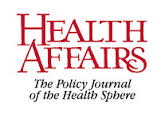A new study suggests that future cuts in Medicare disproportionate share (Medicare DSH) and Medicaid DSH payments could pose problems for hospitals that serve large numbers of uninsured patients.
According to a new report in the journal Health Affairs,
Such cuts in government funding of uncompensated care could pose challenges to some providers, particularly in states that have not adopted the Medicaid expansion or where implementation of health care reform is proceeding slowly.
Medicare DSH and Medicaid DSH payments help underwrite the uncompensated care hospitals provide to their uninsured patients. These payments are a vital source of revenue for Pennsylvania’s safety-net hospitals and Pennsylvania is among the states that have not yet adopted Medicaid expansion.
 Even after Affordable Care Act reforms take effect, 25 to 30 million Americans are expected to remain uninsured. Medicare DSH payments are expected to decline $22.1 billion between now and 2019 and Medicaid DSH payments, temporarily delayed by two separate actions of Congress, are expected to decline $17.1 billion through 2020.
Even after Affordable Care Act reforms take effect, 25 to 30 million Americans are expected to remain uninsured. Medicare DSH payments are expected to decline $22.1 billion between now and 2019 and Medicaid DSH payments, temporarily delayed by two separate actions of Congress, are expected to decline $17.1 billion through 2020.
Learn more about the Health Affairs study in this Washington Post article and find the study itself here, on the web site of Health Affairs.